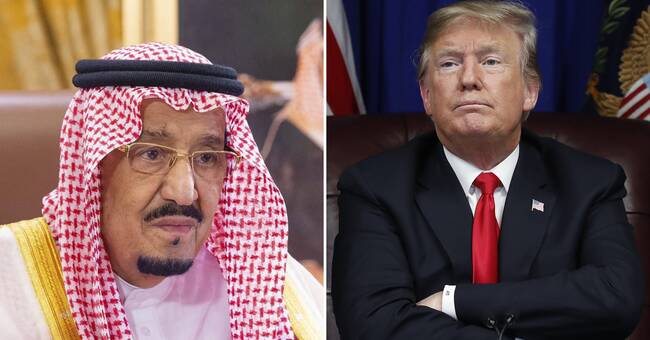The leaders' talks focused on the agreement between the United Arab Emirates and Israel, which was signed in August, which means that the United Arab Emirates will be the third Arab country to establish full diplomatic relations with Israel, after Egypt and Jordan.
King Salman told Trump that Saudi Arabia wants a fair and permanent solution to the Palestinian question.
Saudi Arabia advocates the 2002 Arab Peace Initiative, which offers Israel normalized relations on the condition that Israel withdraw from the territories occupied during the 1967 Six-Day War and agree to the formation of a Palestinian state.
Saudi Arabia does not recognize Israel but recently announced that it would allow flights between Israel and the United Arab Emirates to pass over Israeli airspace.
Normalize relationships
According to a White House spokesman, Trump welcomed the opening of Saudi Arabia's airspace.
Trump is also said to have called on King Salman to negotiate with other Gulf countries on a normalization of relations with Israel.
Saudi Arabia, which is a close ally of the United States and has a leading role in the Gulf Cooperation Council (GCC), has repeatedly said that relations with Israel will not be normalized until a peace agreement based on a two-state solution is reached between Israel and the Palestinians.
Recently expressed hope
However, Riyadh has not criticized the United Arab Emirates for recently abandoning the Arab Peace Initiative.
Trump's Middle East adviser and son-in-law Jared Kushner recently expressed hope that other Arab countries will follow in the footsteps of the United Arab Emirates.
Among the countries mentioned as possible successors are Bahrain, Oman and Sudan.
None of these countries has openly said they are willing to normalize relations with Israel.
The agreement between the United Arab Emirates and Israel was negotiated by the United States and has been criticized by the Palestinians.

